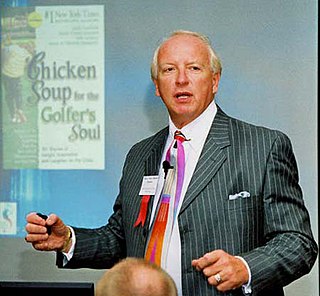A Quote by Michael Lewis
Don't be deceived by life's outcomes. Life's outcomes, while not entirely random, have a huge amount of luck baked into them.
Related Quotes
People really don't like to hear success explained away as luck — especially successful people. As they age, and succeed, people feel their success was somehow inevitable. They don't want to acknowledge the role played by accident in their lives. There is a reason for this: the world does not want to acknowledge it either. If you use better data, you can find better values; there are always market inefficiencies to exploit, and so on. But it has a broader and less practical message: don't be deceived by life's outcomes. Life's outcomes, while not entirely random, have a huge amount of luck baked into them. Above all, recognize that if you have had success, you have also had luck — and with luck comes obligation.
Expected outcomes contribute to motivation independently of self-efficacy beliefs when outcomes are not completely controlled by quality of performance. This occurs when extraneous factors also affect outcomes, or outcomes are socially tied to a minimum level of performance so that some variations in quality of performance above and below the standard do not produce differential outcomes
Accurate processing of information about outcomes is no simple task under the variable conditions of everyday life . . . usually, many factors enter into determining what effects, if any, given actions will have, Actions, therefore, produce outcomes probabilistically rather than certainly. Depending on the particular conjunction of factors, the same course of action may produce given outcomes regularly, occasionally, or only infrequently
It is still true that the life we have created for ourselves on this earth is not working. Not one of the systems we have put into place in our world is functional - not the political, not the economical, not the ecological, not the educational, not the social, and not the spiritual. None of them are producing the outcomes we say we want. In fact, it's worse. They are producing the outcomes we say we don't want.
The problem that people don't understand is that active managers, almost by definition, have to be poorly diversified. Otherwise, they're not really active. They have to make bets. What that means is there's a huge dispersion of outcomes that are totally consistent with just chance. There's no skill involved it. It's just good luck or bad luck.
































